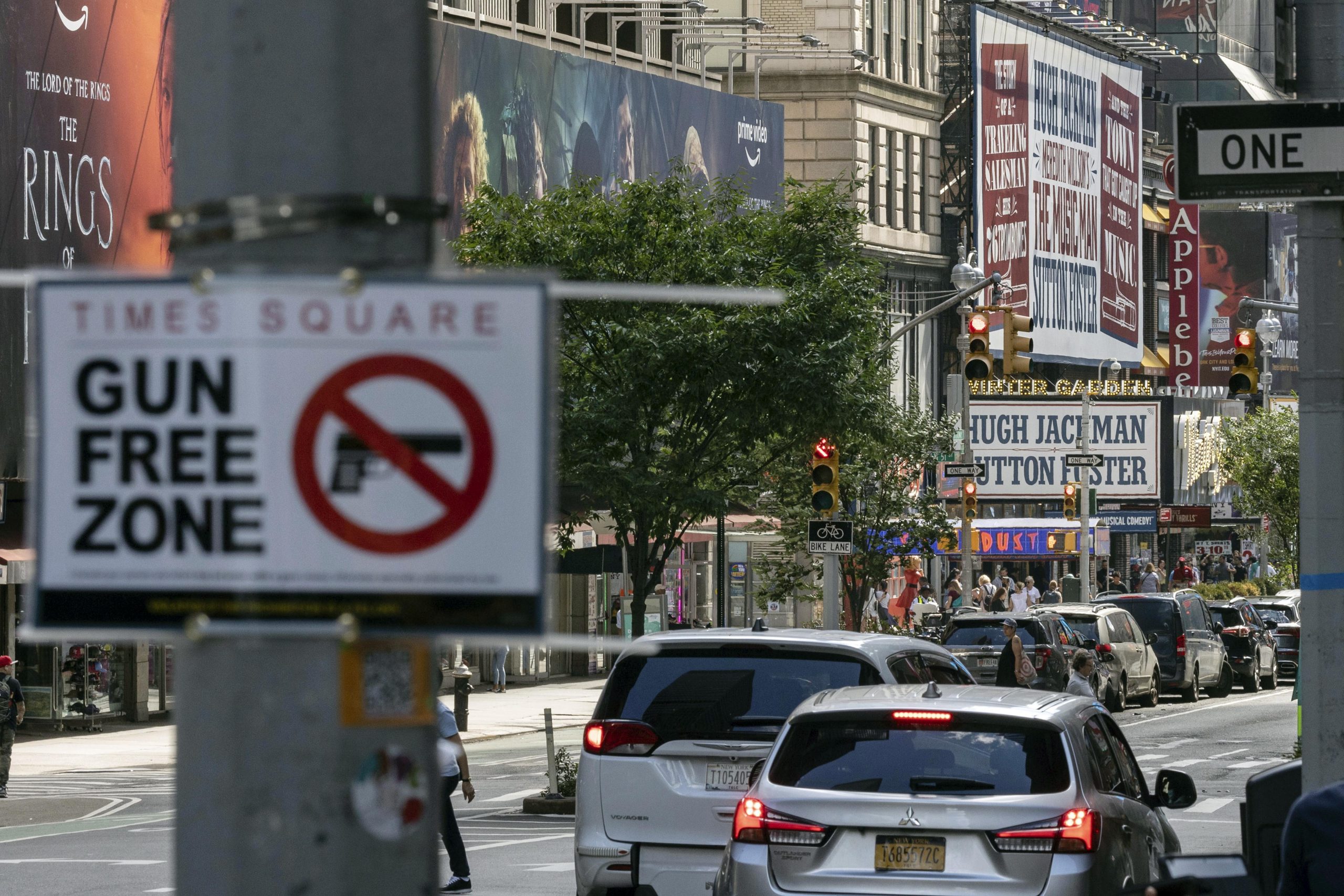A federal judge on Thursday temporarily blocked several parts of New York’s new gun law that was passed in response to the Supreme Court‘s summer ruling against the Empire State’s restrictive concealed carry permit regime.
Chief Judge Glenn Suddaby of the U.S. District Court in Syracuse blocked portions of the law to allow the challengers, Gun Owners of America, to pursue its lawsuit challenging the state’s law that went into effect on Sept. 1. One of the major changes from the order removes much of the law’s prohibitions on carrying guns in public spaces, including Times Square in the heart of Manhattan and on subways.
‘GOOD MORAL CHARACTER’ REQUIREMENT IN NY CONCEALED CARRY LAW HAS RACIST ROOTS, 2A GROUPS SAY
The new law, known as the Concealed Carry Improvement Act, created requirements to obtain a gun license, including submitting social media accounts for review and a “good moral character” clause that critics said was rooted in outdated and racist laws.

The judge said the order would not take effect for three days to allow the state government a chance to appeal the ruling to a higher court, according to court documents.
Attorney General Letitia James (D-NY) vowed to appeal the decision, saying that “while the decision preserves portions of the law, we believe the entire law must be preserved as enacted,” according to a statement.
“Common-sense gun control regulations help save lives. I will not back down from the fight to protect New Yorkers from repeated and baseless attacks on our state’s gun safety measures. I will continue to defend our responsible gun laws and fight for the safety of everyday New Yorkers,” James added.
A major change within the judge’s order now blocks some of the law’s provisions that inscribed new requirements for background checks for gun permits, including the disclosure of all of an applicant’s social media accounts and a previous requirement for applicants to have meetings with a licensing officer.
The judge also blocked the bans on guns in some public and private properties because he was highly critical that the law was too broad in its definition of “sensitive places” where guns wouldn’t be allowed.
Suddaby held that gun bans can only be enforced in polling places, government administrative buildings, public areas restricted to general access for special events via permits, such as Times Square on New Year’s Eve, and any public or private educational facilities.
Local city officials are likely to contest many parts of Suddaby’s ruling, as New York City Mayor Eric Adams, a Democrat, held a hearing on Sept. 30 detailing several bills including one to designate Times Square as a “Gun Free Zone.”
Although guns will remain banned from any place of worship or religious observations, Suddaby clarified that people who are tasked with security are permitted to carry firearms, such as church-employed “peace officers.”
Additionally, Suddaby rejected the provision that gun license applicants should have good moral character. Under the order, it is now up to the licensing agency to prove the applicant does not have good moral character.
CLICK HERE TO READ MORE FROM THE WASHINGTON EXAMINER
Before the law took effect in September, Suddaby said he believed much of the new law would be unconstitutional but denied plaintiffs’ request to block it because neither group nor member had standing to sue before it was enacted on Sept. 1.
New York lawmakers in the Democratic-majority legislature passed the gun law during an emergency session in July that was ordered by Gov. Kathy Hochul (D) in response to the Supreme Court’s 6-3 decision in New York State Rifle and Pistol Association v. Bruen in June, which held the state’s previous concealed carry law was unconstitutional.

